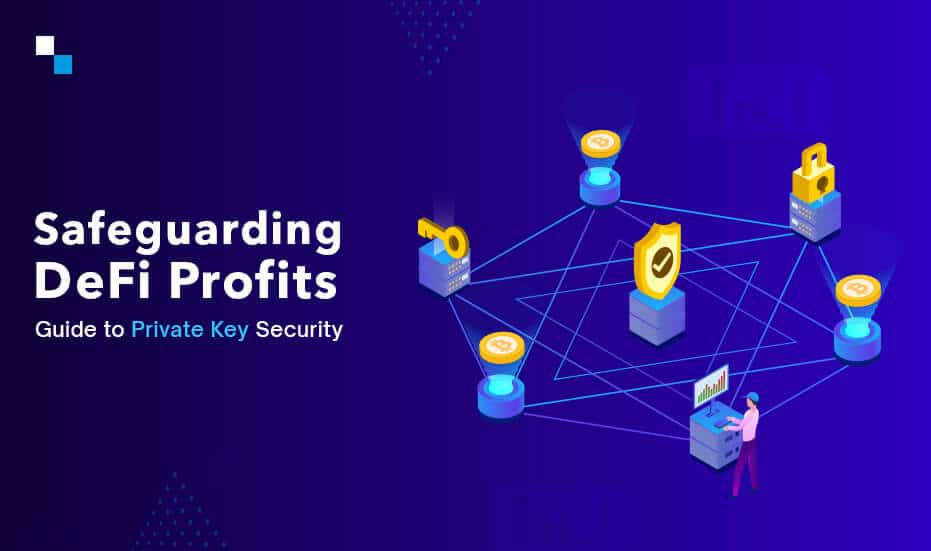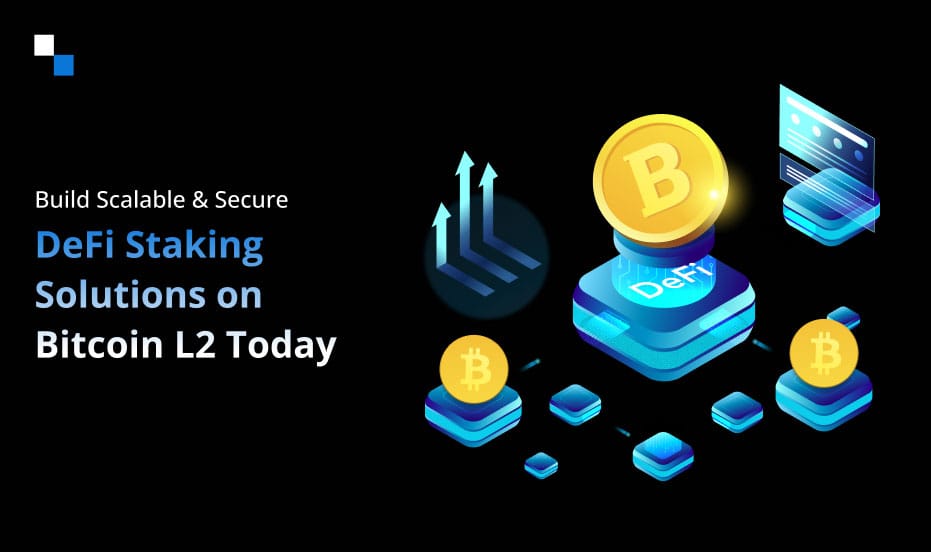
Exploring Advanced Features of Next-Generation NFT Marketplaces
August 21, 2023
NFTs for Digital Identity: Building Trust for a Smarter Tomorrow
August 22, 2023The rapid growth of the cryptocurrency, blockchain, and DeFi development has brought about exciting opportunities, but it has also underscored the critical importance of securing your private keys of your wallet.
Private keys are a critical part of DeFi wallets. They are used to control access to cryptocurrency wallets, which store DeFi assets. Without a private key, no one can access your DeFi assets. They are the digital equivalent of your personal signature – they grant you control over your digital assets and transactions. Safely storing your private keys is paramount to protect your investments and ensure a worry-free experience in the world of decentralized finance. In this blog, we will explore nine essential ways to securely store your private keys and safeguard your crypto holdings.
What Exactly are Private Keys?
When you create a DeFi wallet, you are given a private key and a public key. The public key is like your bank account number, and it can be shared with anyone. The private key is like your ATM PIN, and it should be kept secret. To make a DeFi transaction, you need to sign the transaction with your private key. This proves that you are the owner of the assets being transferred. The transaction is then broadcast to the DeFi network and added to the blockchain.
If someone gets your private key, they can steal your DeFi assets. This is why it is important to keep your private key safe and secure. You should never share your private key with anyone, and you should never store it in a digital format that could be hacked.
How to Protect your Private Keys?
Whether you’re a seasoned crypto enthusiast or just entering the realm of DeFi, understanding how to protect your private keys is fundamental to maintaining control over your investments and engaging in secure transactions. There are several ways of protecting your private keys. Here, you will find 9 ways of doing so:
Hardware Wallets: The Fort Knox of Crypto Storage
Hardware wallets are physical devices designed solely for the purpose of securing private keys. They are isolated from internet-connected devices, making them highly resistant to hacking attempts and online threats. Leading hardware wallets like Ledger and Trezor offer robust security features and encryption, ensuring your private keys are stored offline and immune to remote attacks.
Paper Wallets: Old-School Security
A paper wallet involves generating your private key offline and printing it on paper. This creates an offline storage solution that is immune to online hacking. However, you must ensure that the paper wallet is kept in a safe, dry, and fireproof location to prevent physical damage or loss. To create a paper wallet, you can use a service like MyCrypto or Coinomi.
Encrypted USB Drives: A Digital Safe
Using encrypted USB drives is a modern way to store private keys. These drives are password protected and can be disconnected from your computer when not in use, reducing the risk of online attacks. Remember to choose a reputable brand and regularly update your encryption passwords. When it comes to Decentralized finance development, user needs private keys to access DeFi apps, and it’s essential to save them securely to avoid any financial damage.
Cold Storage: Disconnect for Safety
Cold storage refers to keeping your private keys completely offline, disconnected from the internet. This method minimizes the risk of online breaches. Cold storage solutions can include hardware wallets, paper wallets, or even air-gapped computers specifically dedicated to managing private keys.

Mnemonic Phrases: The Power of Words
Mnemonic phrases, also known as seed phrases or recovery phrases, are a series of words that represent your private key. These phrases can be stored physically or digitally, and they can be used to recover your private key if it’s lost. Encrypt digital versions and ensure physical copies are kept in a secure location.
Distributed Storage: Divide and Conquer
Distributed storage involves breaking your private key into multiple parts and storing them separately. This can be done using cryptographic techniques or through multi-signature wallets. Even if one part is compromised, the attacker would need all the pieces to access your private key.
Secure Cloud Storage: A Double-Edged Sword
While cloud storage offers convenience, it also presents security risks. If you choose to store your private keys in the cloud, opt for a highly secure cloud service provider and enable strong encryption and two-factor authentication. However, it’s generally safer to avoid storing private keys on the cloud.
Use a Dedicated Computer: Isolation for Safety
Consider using a dedicated computer or device exclusively for managing your private keys. This reduces the risk of malware or viruses compromising your keys by keeping your crypto-related activities separate from everyday internet browsing.
Physical Security Measures: Protecting Tangible Assets
If you opt for physical storage solutions like paper wallets, USB drives, or mnemonic phrases, treat them like valuable assets. Store them in a secure, fireproof safe or safety deposit box. Implement additional layers of security, such as alarms or surveillance systems, to safeguard against theft or damage.
Conclusion
Safely storing your private keys is a fundamental responsibility when engaging in the world of cryptocurrencies and decentralized finance. The methods discussed in this blog offer varying levels of security and convenience, and the best approach may depend on your individual preferences and risk tolerance. Regardless of the method you choose, always prioritize security, regularly update your practices, and stay informed about the latest security developments to ensure the long-term safety of your digital assets.
Looking for the best DeFi development services that ensure high security with cutting edge features? Get in touch with Antier!



